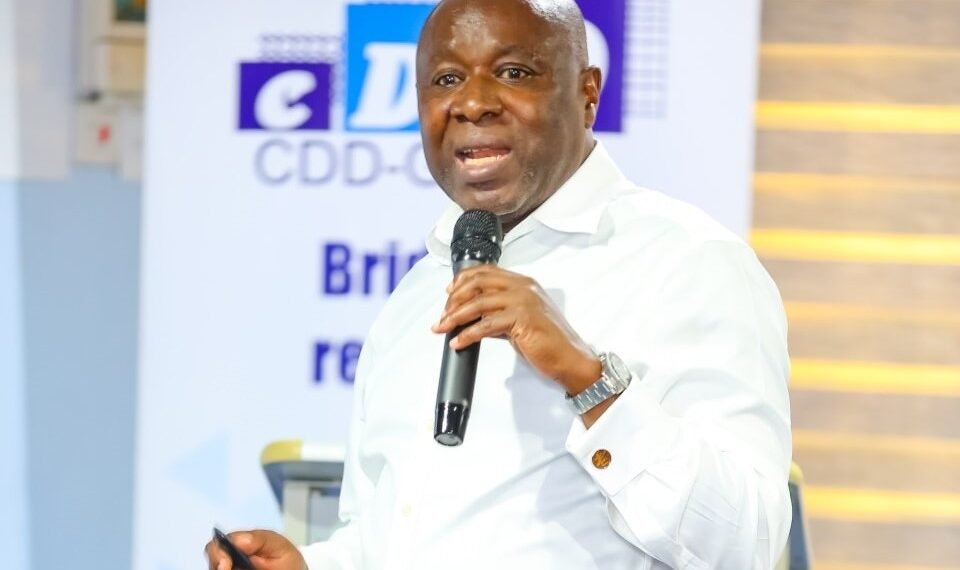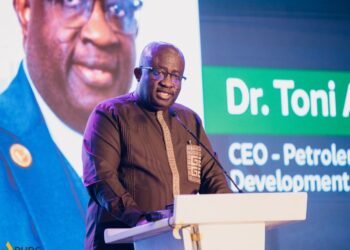CDD-Ghana Fellow and MIT/Columbia University graduate, Dr. Ohene Aku Kwapong, has made a strong case for the establishment of a National Economic Development Corporation (NEDC) to drive Ghana’s development agenda, describing the country’s current development structure as fragmented, inefficient, and lacking a central “thinking center.”
According to Dr. Kwapong, Ghana’s development failures—manifested in repeated scandals, uncompleted projects, and wastage of public funds stem largely from the absence of a coordinated institutional body that evaluates, prioritizes, and manages national projects strategically.
He argued that government initiatives such as Gold-for-Oil, One District, One Factory (1D1F), and several major mining and infrastructure projects are often launched in isolation, without a coherent oversight system to ensure sustainability and value for money.
“These keep happening because all major projects are done in silos for obvious reasons of ease to fleece through procurement. The country has no thinking center—one place where big projects and interventions are vetted, scored, and managed.”
CDD-Ghana Fellow and MIT/Columbia University graduate, Dr. Ohene Aku Kwapong,
Dr. Kwapong lamented that this disjointed approach to development planning and execution has resulted in widespread inefficiency and waste. “This is the unitary reason why there are so many uncompleted projects littering the country. Why build a road only to run out of funds?” he asked rhetorically.
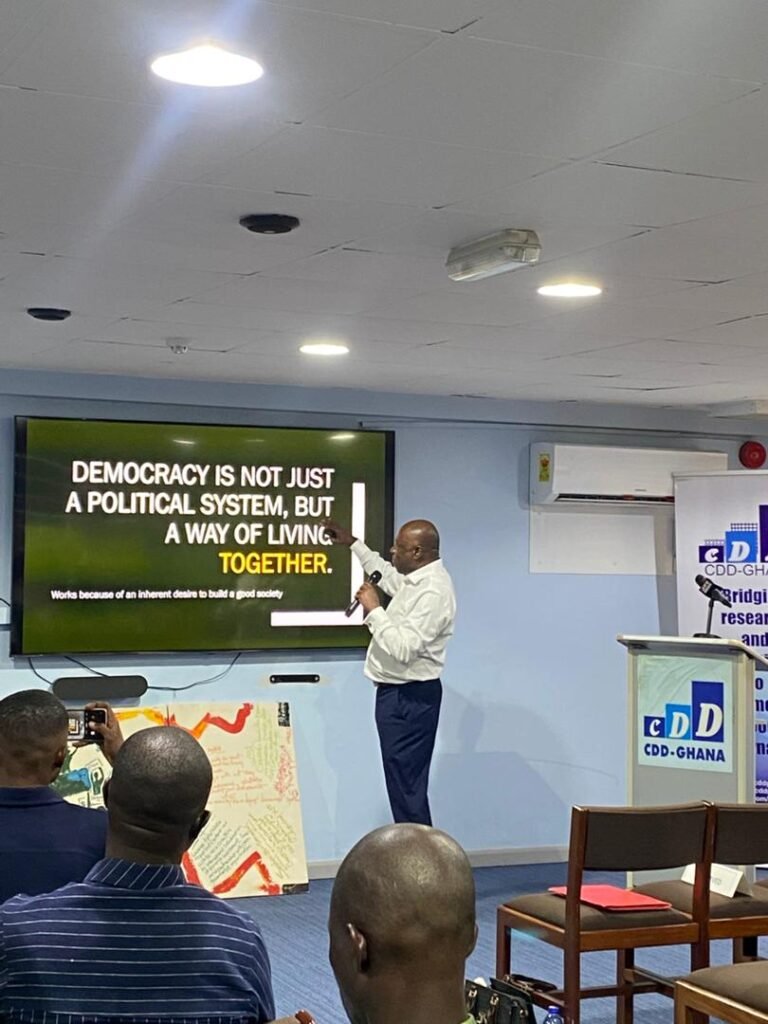
Five Core Challenges Plaguing Ghana’s Development Delivery
He identified five core challenges plaguing Ghana’s development delivery: fragmentation, inefficient spending, weak execution, limited transparency, and competitiveness gaps.
He observed that overlapping mandates among government agencies and planning institutions have created a web of bureaucracy that diffuses accountability.
“Overlapping mandates across planning and sector agencies create fragmentation, and this has resulted in inefficiency, with the state spending over GHS 300 million annually on coordination and planning bodies that lack portfolio discipline.”
CDD-Ghana Fellow and MIT/Columbia University graduate, Dr. Ohene Aku Kwapong
Dr. Kwapong further pointed out that nearly 40 percent of government projects face delays or abandonment, creating huge sunk costs and public frustration.
He noted that citizens and Parliament alike struggle to track the progress and value-for-money of public projects due to scattered data and the absence of a central performance dashboard.
“Without a single institution responsible for pipeline quality, Ghana under-leverages private capital and misses investment windows,” he said, arguing that the country’s inability to coordinate and monitor projects systematically weakens its global competitiveness.
Replacing NDPC With NEDC
As a remedy, Dr. Kwapong is proposing the dissolution of the National Development Planning Commission (NDPC) and the creation of a single, performance-driven body — the National Economic Development Corporation (NEDC).
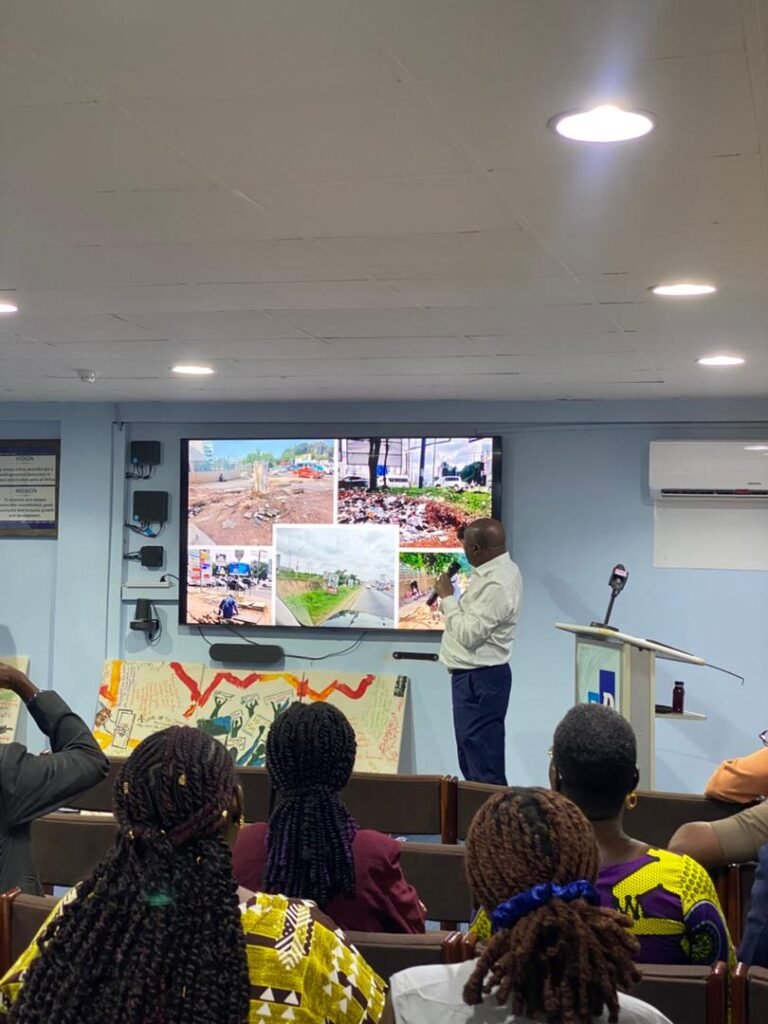
He explained that the NEDC would consolidate key planning and delivery functions, run a rigorous stage-gate system for Ghana’s most strategic programs, and provide independent value-for-money analysis, project control, and competitiveness reporting.
“With more than GHS 300 million spent annually across fragmented development bodies and an estimated 40 percent of government projects delayed or abandoned due to weak planning and oversight, the status quo is costly and unsustainable”.
CDD-Ghana Fellow and MIT/Columbia University graduate, Dr. Ohene Aku Kwapong
Under his proposal, the NEDC would include a dedicated Major Projects Execution (MPE) directorate, which would function as the government’s “owner’s representative” for the country’s top 50 to 100 capital projects. This directorate would ensure on-time and on-budget delivery, providing professional oversight similar to models used in high-performing economies.
Dr. Kwapong projected that the NEDC, if established, could generate significant savings and transform Ghana’s development outcomes. He estimated potential annual overhead savings of between GHS 100 million and GHS 150 million through consolidation and shared services.
Additionally, he forecast that delays and abandoned projects could be reduced from the current 40 percent to less than 15 percent within three years through stronger planning, controls, and accountability systems.
“The NEDC would not only ensure efficiency but also enhance transparency and rebuild public trust. Quarterly public dashboards would track project performance and spending, allowing citizens and Parliament to follow progress in real time.”
CDD-Ghana Fellow and MIT/Columbia University graduate, Dr. Ohene Aku Kwapong
Annual Competitiveness Benchmarking Report
He also proposed that the NEDC publish an annual competitiveness benchmarking report, assessing Ghana’s performance in attracting investment and managing public projects compared to peer countries.
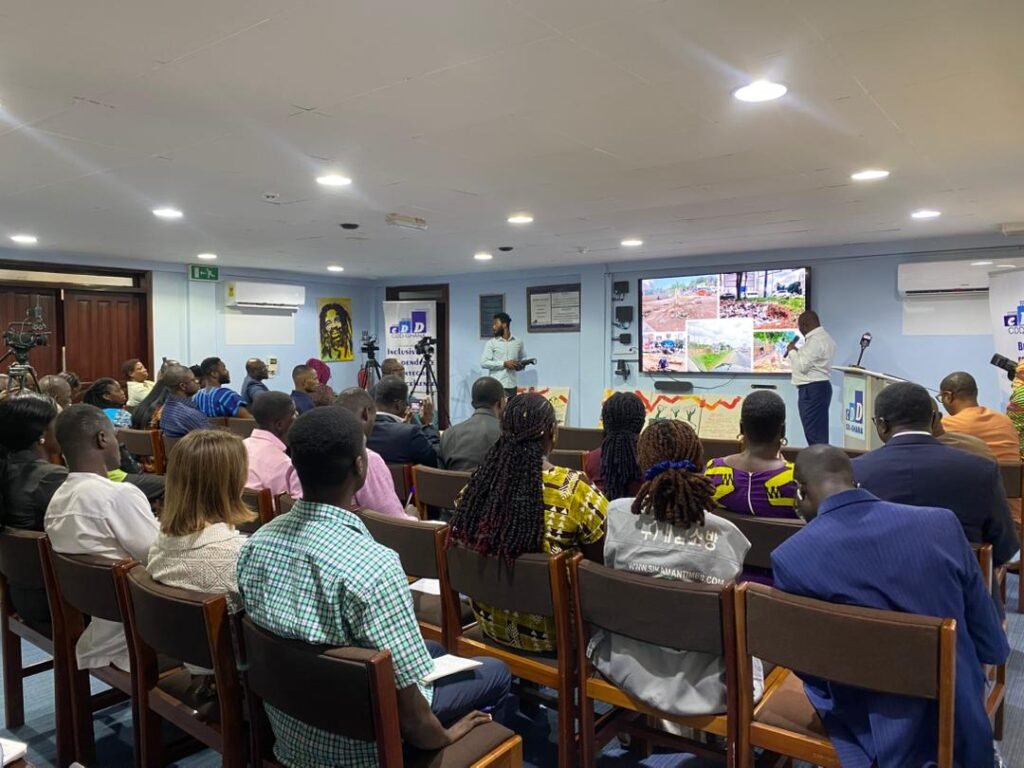
This, he said, would create a feedback loop that drives continuous reform and investment growth. Dr. Kwapong emphasized that Ghana’s current development model lacks the institutional muscle to align vision with execution.
He stressed that the NEDC would be designed not as another bureaucracy but as a high-performance, technocratic body driven by data, project management expertise, and performance metrics.
Dr. Kwapong concluded that Ghana’s long-term transformation depends on breaking the cycle of disjointed policy delivery and wasteful project management.
READ ALSO: Ghana Showcases Energy Sector Transparency at Global Summit in Spain

